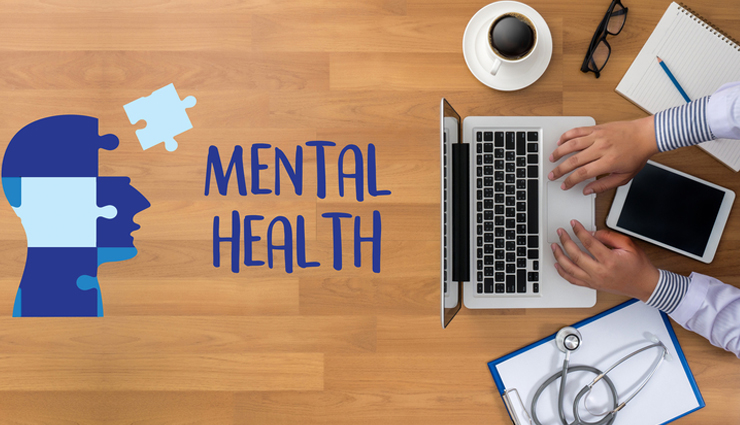- Home›
- Healthy Living›
- Understanding The Impacts Of Public Health On Society Today
Understanding The Impacts Of Public Health On Society Today
By: Priyanka Maheshwari Mon, 27 Mar 2023 1:28:07

For modern society to thrive, public health is an essential component. Through collective initiatives and efforts, we serve to protect the welfare of individuals, communities, and populations alike. It involves the scientific study of diseases and their distribution, the development and implementation of policies and programs to prevent and control illnesses, and the assessment and management of the health needs of communities.
Public health professionals work in various settings, including government agencies, healthcare organizations, non-profit organizations, academic institutions, and private companies. They are responsible for preventing and controlling diseases, promoting healthy lifestyles, and addressing environmental hazards that affect people's health.
This blog post will discuss some major impacts public health has on society.

Economic Development
Public health has a significant impact on economic development. Their initiatives have helped promote economic growth, reduce poverty, and improve living standards by reducing the burden of disease and improving individuals' health.
Public health initiatives also help to reduce healthcare costs and improve productivity. Public health efforts can reduce the burden on healthcare systems by promoting healthy living, preventing diseases, and limiting the need for costly medical interventions.Programs promoting workplace safety and preventing occupational injuries and illnesses have also reduced healthcare costs and improved workforce productivity.
A strong public health infrastructure is essential for economic growth, and one way you, as a responsible citizen, can contribute to it is by pursuing a degree in public health. Online education is flexible and particularly useful for individuals balancing work or other responsibilities. By pursuing an MPH online degree, you can gain the skills and knowledge needed to make a meaningful impact on public health and contribute to a healthier, more prosperous world.
Prevention of Epidemics
One of the most significant impacts of public health on society today is the prevention and control of diseases. Public health professionals work tirelessly to prevent the spread of infectious diseases such as COVID-19, HIV/AIDS, and malaria. They conduct surveillance to detect outbreaks early, investigate and contain outbreaks, and implement strategies to prevent the further spread of the disease. These efforts have been critical in reducing the impact of infectious diseases on society.
Vaccination campaigns have been implemented through public health initiatives, significantly reducing vaccine-preventable diseases such as measles, polio, and rubella. Vaccines are essential to public health, as they protect individuals and reduce the spread of diseases within communities.

Reducing Health Disparities
Public health initiatives also strive to reduce health disparities, which are differences in health outcomes among different populations. These disparities are often associated with social and economic factors like access to healthcare, education, and income.
Public health professionals focus on identifying and addressing the root causes of these disparities by developing programs and initiatives that promote equitable access to healthcare services and improve health outcomes for all individuals.
These efforts have effectively decreased the gap in health outcomes between different populations, particularly for vulnerable groups such as children, the elderly, and pregnant women. Initiatives like immunization programs, prenatal care, and health screenings have helped to reduce health disparities and boost health outcomes for these populations.
Improved Global Health
Public health significantly impacts global health, and their efforts have improved health outcomes by promoting international cooperation, sharing resources and knowledge, and implementing global health initiatives.
Public health professionals also work to address global health issues such as infectious diseases, maternal and child health, and malnutrition. These efforts have led to significant improvements in global health outcomes.

Increased Life Expectancy
Public health initiatives have played a crucial role in increasing life expectancy worldwide by implementing measures like disease prevention, enhancing access to healthcare, and promoting better living standards. These initiatives have effectively controlled non-communicable diseases such as diabetes, heart disease, and cancer, leading to significant enhancements in life expectancy and overall health outcomes.
Promoting Healthy Lifestyles
Public health initiatives promote healthy lifestyles through education and awareness campaigns.Public health professionals work to educate individuals and communities on healthy eating habits, physical activity, and disease prevention. These initiatives are critical in reducing the risk of chronic diseases such as obesity, heart disease, and diabetes.
Public health campaigns also aim to reduce risky behaviors such as smoking, excessive alcohol consumption, and drug abuse. These behavior shave negative health consequences and affect individuals' social and economic well-being. By promoting healthy lifestyles, public health initiatives improve the overall health of individuals and communities, reduce healthcare costs, and increase productivity.

Improved Mental Health
Public health initiatives improve mental health outcomes by reducing stigma, increasing access to mental health services, and addressing social determinants of mental health, such as poverty and social isolation.
Public health professionals work to increase public education and awareness campaigns about mental health and encourage individuals to seek help when needed. It includes community outreach programs, mental health screenings, and other initiatives designed to reduce mental health stigma.
By breaking down the barriers to seeking mental health services and addressing underlying social factors, public health efforts can improve access to care and help individuals receive the support they need.
Addressing Environmental Hazards
Public health professionals also play a critical role in addressing environmental hazards that affect people's health. Environmental hazards such as air and water pollution, lead exposure, and hazardous waste can have significant health consequences. These hazards can cause respiratory diseases, neurological damage, cancer, and other health problems.
Public health professionals work to identify and mitigate environmental hazards. They conduct research to understand the health effects of environmental hazards and develop strategies to reduce exposure. Public health initiatives such as promoting clean air and water, reducing exposure to hazardous waste, and improving sanitation have helped improve the overall health of individuals and communities.
Conclusion
Public health is a vital aspect of healthcare that has profoundly impacted society. Public health initiatives have promoted healthy behaviors and prevented illnesses, leading to better health outcomes, increased life expectancy, and economic growth worldwide. Public health is a scientific approach to preventing diseases, promoting health, and prolonging life through coordinated efforts of individuals, organizations, public and private sectors, and society as a whole. As we move forward, public health will remain a critical factor in enhancing the health and well-being of people in society.





